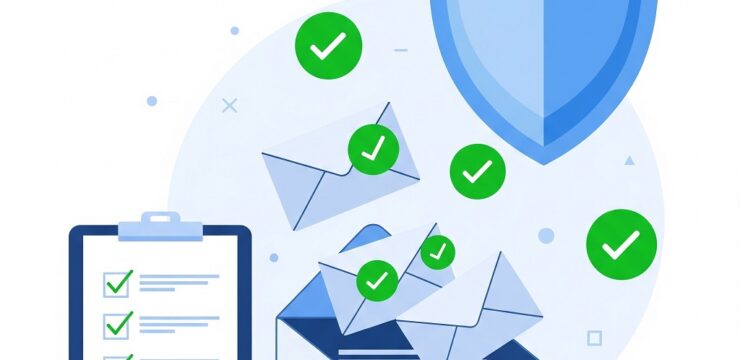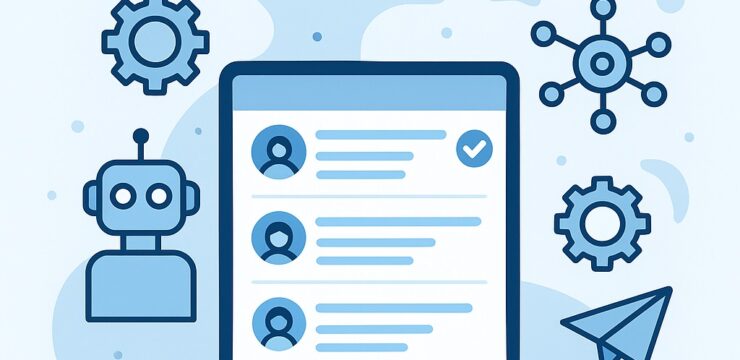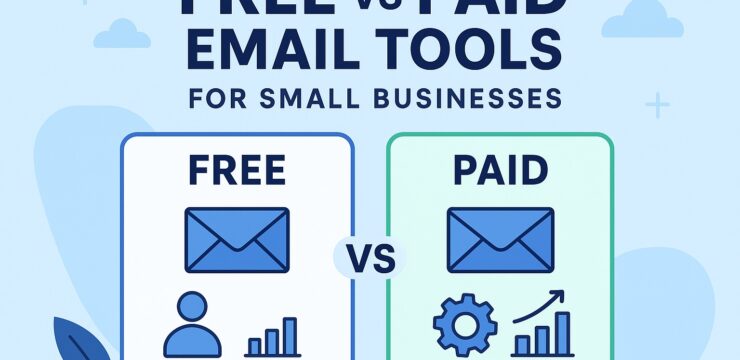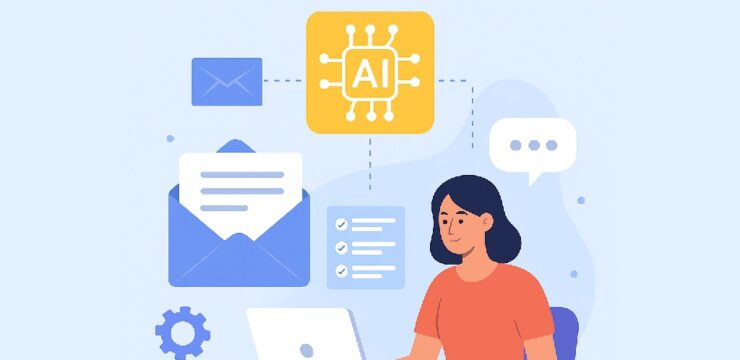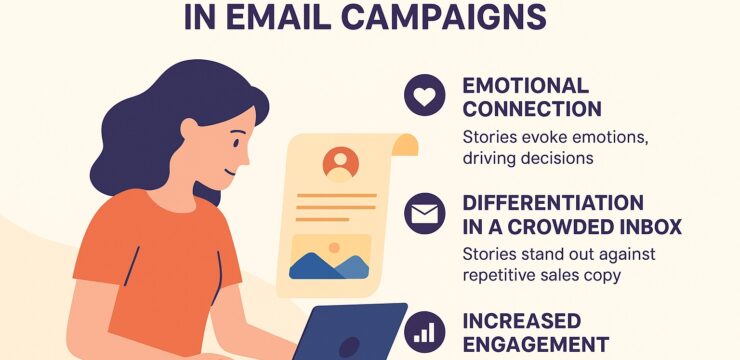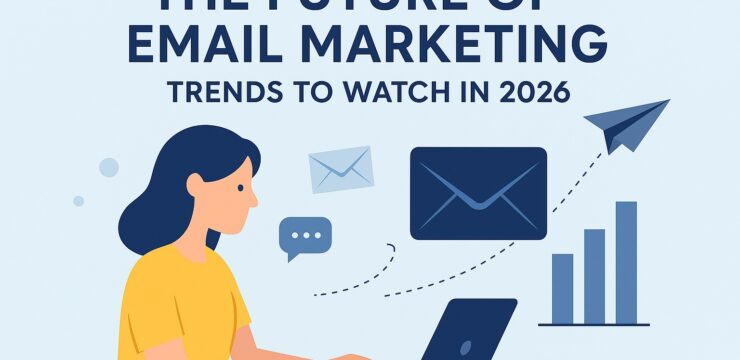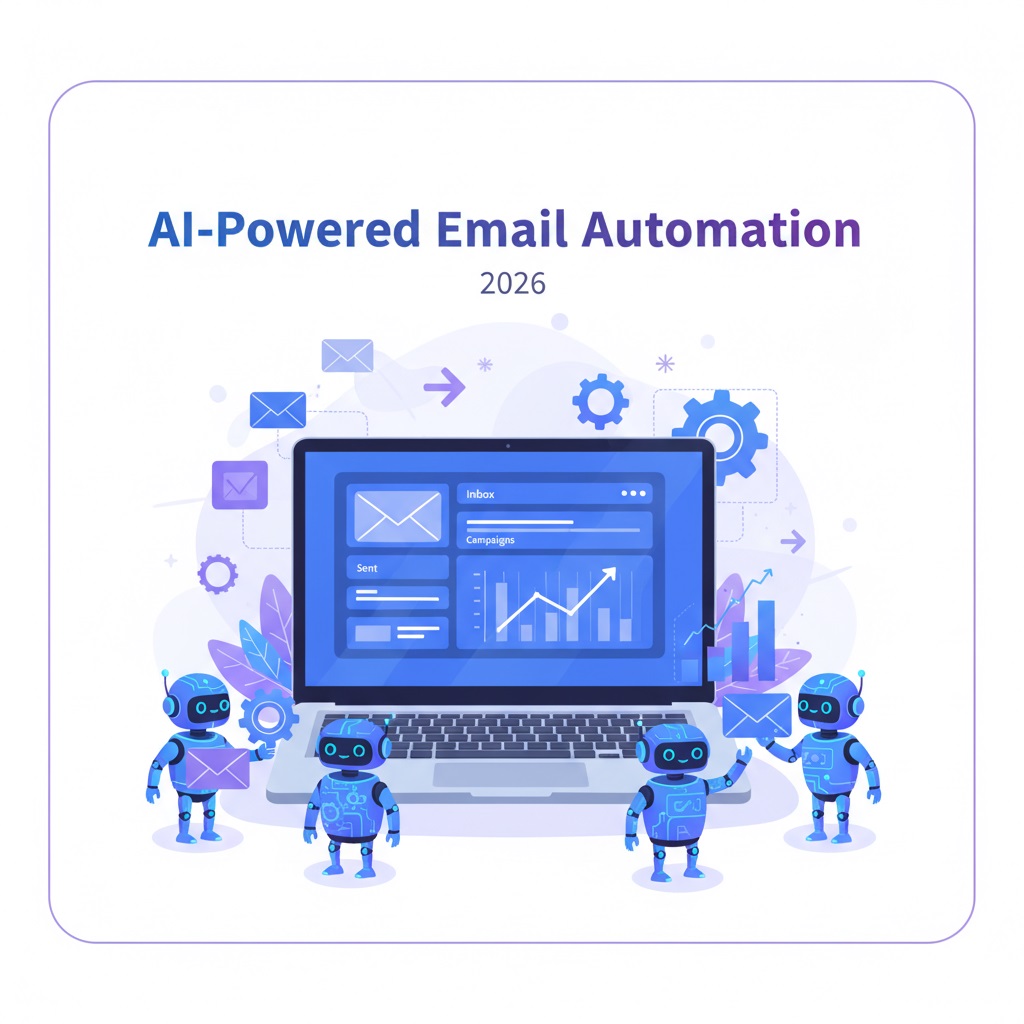
Email marketing has always been one of the most cost-effective channels for reaching customers, nurturing leads, and driving conversions. As businesses continue to face overwhelming digital noise, artificial intelligence (AI) has stepped in as a game-changer. By 2026, AI-powered email automation isn’t just a marketing trend — it has become an essential strategy for brands of all sizes. From hyper-personalization to predictive analytics, AI is enabling marketers to deliver the right message, to the right person, at the right time — and with minimal effort.
In this article, we’ll explore how AI-powered email automation is transforming marketing in 2026, the tools that lead the charge, and the tactics you need to implement to stay competitive.
Why AI-Powered Email Automation Matters in 2026
Consumers are no longer satisfied with generic newsletters or broad promotional emails. Instead, they expect relevant, timely, and value-driven communication. AI bridges the gap by analyzing huge amounts of customer data and automating workflows that adapt in real time. The result is a smarter, leaner, and far more effective marketing process.
Here’s why AI-powered automation matters more than ever in 2026:
- Hyper-Personalization: AI tools analyze behavior, purchase history, and preferences to create email campaigns tailored to individual subscribers.
- Efficiency at Scale: Businesses can automate thousands of campaigns simultaneously, saving time while maintaining quality.
- Predictive Analytics: Marketers can forecast customer needs, predict churn, and send proactive messages that improve retention.
- Improved ROI: Automated and data-driven campaigns significantly outperform traditional batch-and-blast strategies.
Top AI-Powered Email Automation Tools for 2026
AI email automation isn’t just about technology — it’s about the tools that empower marketers to maximize their efforts. Here are some of the most popular and effective platforms in 2026:
1. Mailchimp AI Pro
Mailchimp continues to dominate the email marketing world, but in 2026, its AI Pro suite offers next-level features. With predictive segmentation, automated content optimization, and send-time AI, Mailchimp ensures every campaign is data-backed and user-focused.
2. HubSpot Smart Email Hub
HubSpot’s Smart Email Hub integrates AI with its CRM to deliver fully automated lifecycle campaigns. The AI engine adjusts subject lines, content, and even CTAs based on subscriber engagement history, driving unmatched personalization.
3. ActiveCampaign AI+
Known for its automation workflows, ActiveCampaign AI+ takes it a step further with behavior prediction models and lead scoring powered by machine learning. Marketers can now automate nurturing campaigns that adapt dynamically to customer behavior.
4. Klaviyo Predictive Engine
Popular among eCommerce brands, Klaviyo’s predictive engine uses AI to forecast purchases, churn risks, and customer lifetime value. Emails are automatically customized with recommendations and urgency-based triggers that drive sales.
5. Salesforce Marketing Cloud Einstein
Salesforce’s Einstein AI integrates across all marketing channels, but its email capabilities stand out in 2026. Einstein can test thousands of subject line variations instantly, predict open rates, and dynamically generate content blocks optimized for each recipient.
AI-Driven Tactics for Smarter Email Campaigns
While tools provide the foundation, it’s the tactics that make campaigns truly shine. By 2026, successful email marketers are deploying AI-driven strategies such as:
1. Predictive Send Times
AI algorithms analyze when each subscriber is most likely to open their emails. Instead of sending a campaign at one fixed time, AI-powered systems stagger delivery based on individual behaviors, boosting open and click rates.
2. Automated Subject Line Optimization
In 2026, subject lines are no longer written manually. AI tools test thousands of variations in milliseconds and choose the best-performing line for each segment. This drastically improves open rates while reducing guesswork.
3. Content Personalization at Scale
From dynamic product recommendations to personalized storytelling, AI customizes email content for each recipient. Whether it’s swapping out images, CTAs, or offers, automation ensures no two inboxes see the same message.
4. Smart Retargeting Emails
Instead of generic cart abandonment campaigns, AI retargets based on context. For example, if a customer browsed sneakers but left without buying, AI may send an email featuring alternative styles, reviews, or even a discount — all determined by predictive behavior models.
5. Automated A/B Testing
Gone are the days of manual A/B testing. AI now runs multivariate tests automatically, identifies winners in real time, and continuously optimizes email campaigns without marketer intervention.
The Role of AI in Email Analytics
AI doesn’t just automate sending emails — it also revolutionizes how marketers analyze performance. In 2026, analytics dashboards powered by AI provide insights that were once impossible to uncover.
- Engagement Predictions: AI forecasts which users are most likely to engage, allowing for targeted nurturing.
- Churn Prevention: Predictive analytics identifies disengaged users before they unsubscribe, prompting re-engagement campaigns.
- Revenue Attribution: AI links email campaigns directly to revenue, giving marketers a clear picture of ROI.
Future Trends in AI Email Automation Beyond 2026
The future of AI in email marketing doesn’t stop in 2026. Here are a few trends on the horizon:
- Voice-Activated Email Campaigns: With smart assistants becoming mainstream, emails optimized for voice responses will emerge.
- Generative AI Content: Entire emails may be written, designed, and optimized in real time using generative AI, eliminating creative bottlenecks.
- Zero-Party Data Integration: AI will increasingly use customer-provided preferences, balancing personalization with privacy regulations.
Final Thoughts
By 2026, AI-powered email automation is no longer optional — it’s essential. Businesses that adopt these tools and tactics can deliver hyper-personalized, efficient, and results-driven campaigns that stand out in crowded inboxes. As customer expectations continue to rise, AI ensures that brands remain agile, relevant, and impactful.
If your business hasn’t embraced AI-powered email automation yet, 2026 is the perfect year to start. The tools are ready, the tactics are proven, and the future is waiting.
